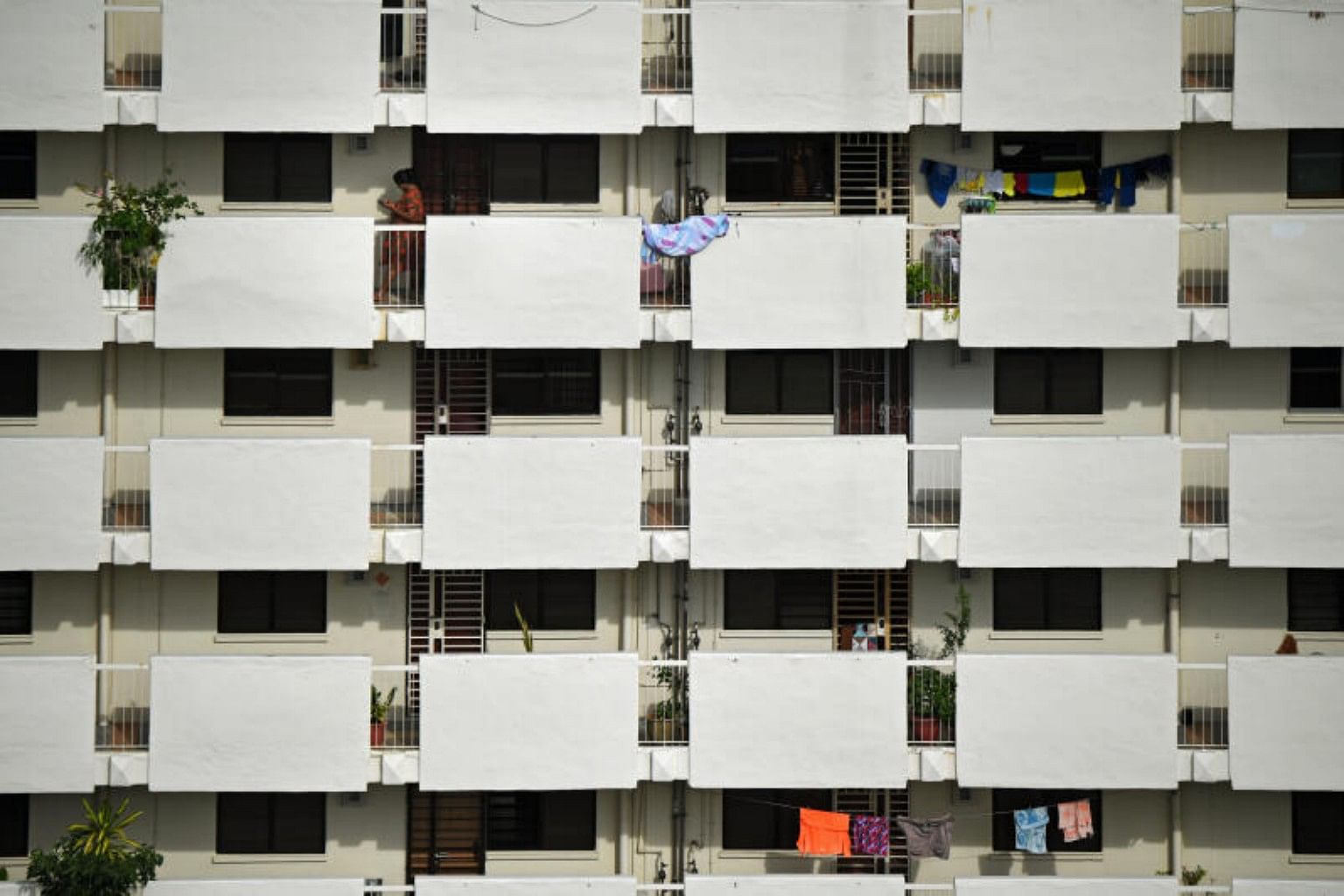Budget debate: Mandatory mediation being considered for some community disputes
Sign up now: Get ST's newsletters delivered to your inbox

Community disputes that go on to mediation are often successfully resolved, but many feuding neighbours refuse to even come to the table.
PHOTO: ST FILE
SINGAPORE - Neighbours embroiled in some disputes may have to undergo mediation before they can take their quarrel to a community tribunal for a ruling, said Minister for Culture, Community and Youth Edwin Tong on Thursday (March 10).
The authorities may make this step mandatory, he added during the debate for his ministry's budget, as community disputes that go on to mediation are often successfully resolved, but many feuding neighbours refuse to even come to the table.
Two years of living in a pandemic, with people forced to stay indoors and work from home, have led to more nerves fraying, and MPs on Thursday asked if more can be done to encourage people to settle community disputes through mediation.
Mr Derrick Goh (Nee Soon GRC), Mr Gerald Giam (Aljunied GRC), Mr Patrick Tay (Pioneer), and Mr Gan Thiam Poh (Ang Mo Kio GRC) each noted that residents were often unwilling to consider mediation, despite the availability of such services, and proposed that this should become mandatory.
Under the Community Dispute Management Framework (CDMF) introduced in 2014 to manage quarrels between neighbours, warring parties are encouraged to try to settle their problems through mediation, before they file a claim with the Community Dispute Resolution Tribunal, which will adjudicate on the matter.
The aim is to try to get neighbours to settle their problems amicably so as to foster harmony and avoid rancour in the living environment.
Mr Giam suggested that if a party refuses to turn up for mediation, then the tribunal, when hearing the dispute, should draw an adverse inference from the non-attendance.
Mr Tong, responding to these calls, said his ministry was, in fact, reviewing the framework, including whether mediation should be mandatory for some disputes before the parties can file a claim with the tribunal.
"This is so neighbours may resolve differences amicably as far as possible, without first going through the (tribunal) process, which is adjudicatory, and often zero-sum in nature," he added.
He said an inter-agency workgroup, with representatives from his ministry as well as the ministries of Law, National Development and Home Affairs, will review the framework.
The workgroup will also look at other measures, including whether people who fail to attend mediation, then want to pursue a claim at the tribunal, should be subject to consequences. It will also study how settlement agreements from the Community Mediation Centre can be given teeth by having them registered as an order of court.
In addition, the tribunal's powers may be strengthened so it can deter non-compliance with tribunal orders and obtain expedited relief in egregious cases, like an interim injunction.
Aside from beefing up the dispute resolution framework, however, MCCY is also looking at ways to strengthen the spirit of neighbourliness and graciousness through shared norms, said Mr Tong.
He cited a recently announced panel set up by the Ministry of National Development to come up with community guidelines on neighbourhood noise as an avenue to build consensus about what should be acceptable behaviour among neighbours.
Ms Tin Pei Ling (MacPherson) observed that whether it is noise from the basketball court downstairs, or high-rise littering and irresponsible feeding of strays, small disagreements if left unresolved can fester into ill feeling and anti-social behaviour with long lasting effects.
"The pandemic has forced us to stay home more. So we face each other more. And things that used to not bother us can become difficult to bear," said Ms Tin.
"So... the community must come to a common understanding on the priorities and acceptable behaviours within the community."
At the debate, MPs also asked how the Inter-Racial and Religious Confidence Circles (IRCC) - which are constituency level interfaith networks that serve as a bridge between ethnic and religious groups - can be refreshed to strengthen racial and religious harmony.
Mr Tong said a workgroup had been formed to look at this, comprising experienced IRCC leaders, as well as youth leaders and representatives from religious organisations, civil society and community groups.
Over the next few months, the workgroup will consult widely and identify the strengths and challenges faced by the IRCCs before coming up with recommendations later this year, added Mr Tong.
MPs also asked about measures on mental wellness, and Minister of State for Culture, Community and Youth Alvin Tan said the Government will expand the Youth Mental Wellbeing Network, formed in 2020 to coordinate efforts to promote youth mental well-being, to tackle mental health issues across a broader range of population segments.
"Mental health issues do not only affect our youths... so whether you are an organisation, a student, a middle aged PMET, or a senior looking for mental well-being support, we welcome you to be part of this effort," he said.


